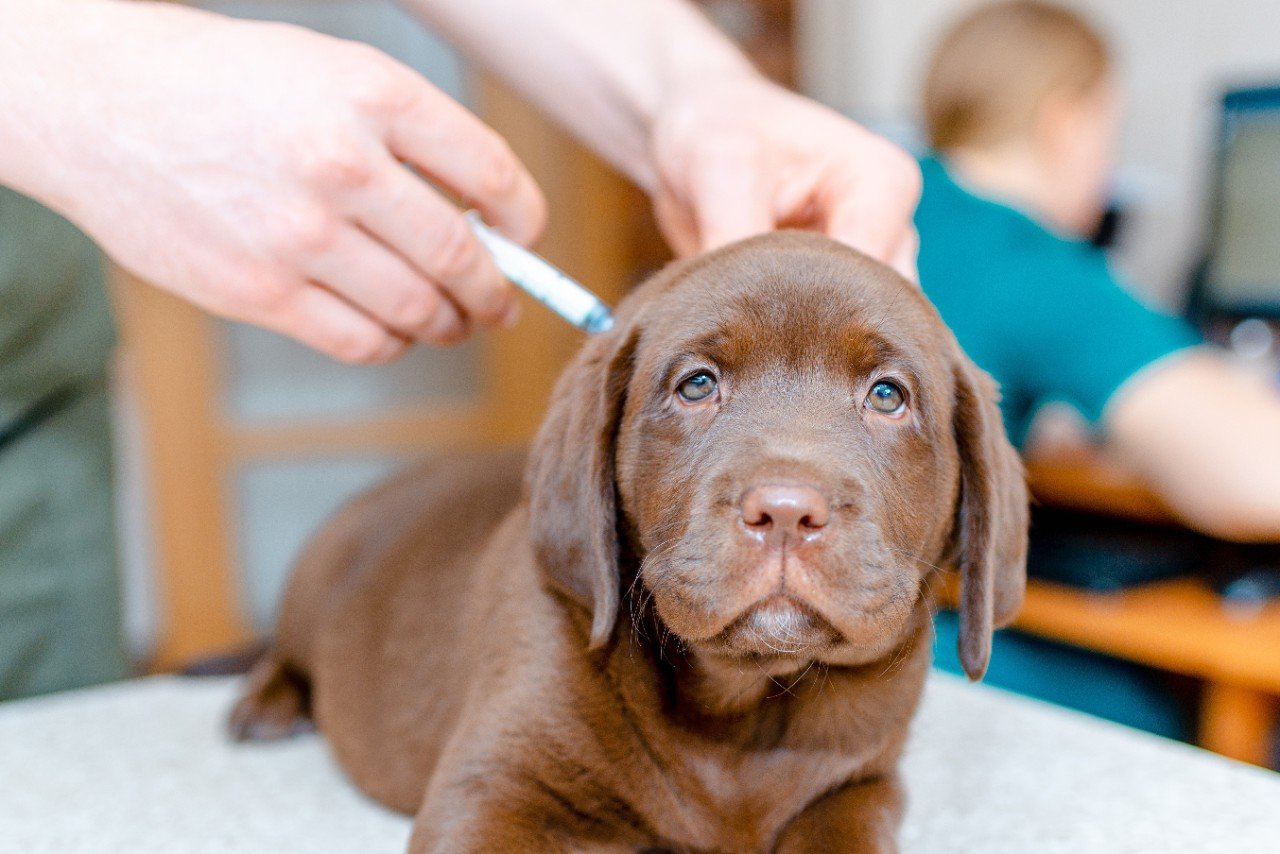Your puppy is going to grow quickly, so they need the right amount and type of food to support them. It is essential that your puppy is provided with a carefully balanced diet containing high-quality ingredients.
Opt for high-quality, commercially made food, since this has been made with the right balance of nutrients for puppies. If your puppy experiences an imbalance of nutrients in their diet, it can potentially harm their growth and development.
Feed your puppy at regular intervals (at least four times) throughout the day, and gradually reduce the number of feedings as your pet gets older. Feeding in intervals allows your puppy to get all the food they need without overstretching their stomach.
Some puppies may develop an upset stomach during the first few days in a new home. Stick with a diet that the puppy is used to and avoid offering a variety of rich foods or overfeeding during these early days.
Avoid giving your puppy too many treats, which usually contain high levels of sugar and milk products. These contribute to obesity in puppies, which can lead to health issues down the line.
It’s also best to avoid giving your puppy food from your plate or your table. Doing so encourages begging and barking, and sets them up for bad habits as they grow.
The amount each puppy needs will vary according to age, size, breed and activity levels. Ask your vet for advice on which diet will suit your puppy.
















